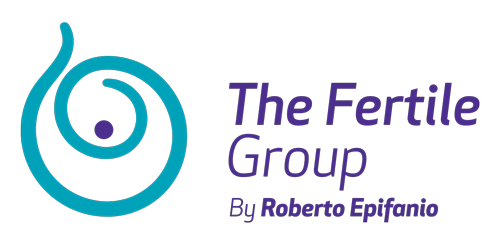Surely on more than one occasion you have seen us talk about the importance of a woman’s age in the search for pregnancy.
It is a reality that, nowadays, women and couples are seeking pregnancy at an increasingly advanced age. In most cases this is due to work reasons, the search for economic stability or simply personal reasons such as the absence of a partner.
It is important to understand, and we always say it, that as the years go by, the quality and quantity of eggs produced by women in each menstrual cycle is less and less, so that when the time comes we find it difficult to achieve pregnancy naturally and even with their own eggs.
When the latter happens, treatments in which we use the eggs of a younger donor offer our patients the possibility of being able to gestate their own pregnancy.
It is true that when we recommend this option, certain doubts arise, whether it is about how to select the donors, the development of the treatment itself or whether the future baby will resemble the parents.
Below, we have tried to compile the most frequent doubts of our patients and answer all of them. Of course, if you have any other questions, we invite you to write to us and we will be happy to answer all your doubts.
For which patients are donor egg treatments recommended?
As we have mentioned, age is one of the reasons why many couples come to The Fertile Group to achieve pregnancy.
The age of the woman and the relationship with low egg quality can lead to various problems, not only not achieving pregnancy naturally. It also influences a number of recurrent miscarriages or that a couple has already resorted to in vitro fertilization with their own eggs and failed to achieve pregnancy.
Ovodonation treatments are generally recommended in the following situations:
After several unsuccessful attempts with own eggs or in elderly women.
Previous failure of assisted reproduction techniques due to insufficient response to ovarian stimulation.
Repeated miscarriages.
Early ovarian failure, due to menopause or secondary to ovarian surgery, chemotherapy or radiotherapy.
Chromosomal or genetic alterations in the woman or embryos.
What are egg donation treatments like?
Treatments with donor eggs are very similar to a conventional In Vitro Fertilization (IVF) with the exception that the eggs we must use to obtain the embryos come from a younger donor.
From here, the eggs are fertilized by our embryologists in our assisted reproduction laboratory with a semen sample from your partner, in case you have one, or from a donor in case the patient is looking to become a mother without a partner, giving rise to the embryos that will later be transferred into your uterus.
How do we select donors at The Fertile Group?
Our donors must pass a strict selection process to guarantee our patients the highest quality and maximum results, including a comprehensive analysis of psychological study, gynecological, genetic, immunological and medical tests, and negative results for the main diseases.
In addition, at The Fertile Group we perform, at the request of the couple, a carrier genetic compatibility test (GCT), matching the 600 most common genetic diseases with the greatest health implications, and offering the couple the additional possibility of contrasting it with the future father to avoid the risk of transmitting a possible genetic disease to the baby.
What are the success rates of treatments with donated eggs?
One of the major benefits of egg donation is that the treatment requires the eggs of a young donor. As you have just seen, at The Fertile Group we perform all kinds of tests and controls to ensure that the eggs are of the highest quality and free of diseases.
In this way, when fertilizing them with the semen sample, which is also previously analyzed and selected, we obtain quality embryos free of genetic diseases, so the chances of achieving pregnancy and the birth of a healthy baby are very high, even higher than in an In Vitro Fertilization with your own eggs.
Will the baby resemble the parents?
Undoubtedly, this is one of the questions that generates more concern in patients.
First of all, even though it is a totally anonymous process in which the identity of the donor and the recipient will not be revealed at any time, our medical team will select the donor with the greatest phenotypic and immunological similarity to the couple, so physical resemblance is also sought at all times.
In addition, according to many studies in the field of genetics, it is considered that there is a relationship between the mother and the baby since the embryo is implanted in the endometrium, so from that moment begins the molecular connection between the embryo and the future mother.
For further information please contact The Fertile Group at:
info@fertileg.com
+507 382 14 00/01



.png)